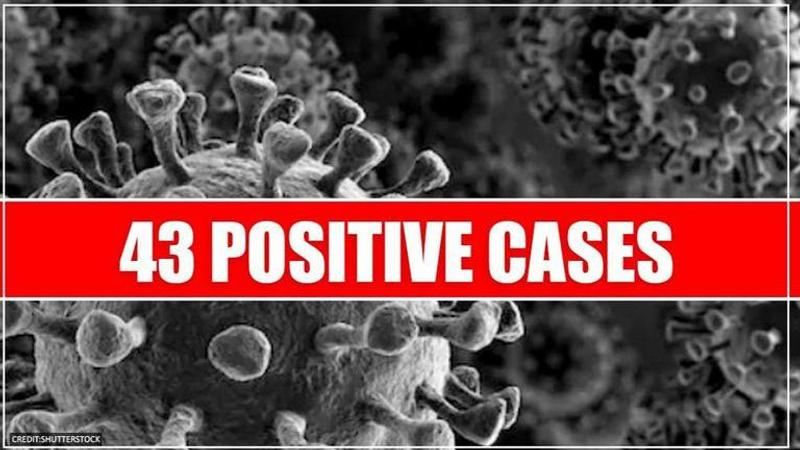Published 14:03 IST, March 9th 2020
India's Coronavirus count rises to 43; Read basic protective measures here
On Monday, the government revealed that positive cases of the novel Coronavirus in India had risen to 43 after new cases were reported from across India

On Monday, the government revealed that positive cases of the novel Coronavirus in India had soared up to 43 after new cases were reported from across India including a three-year-old child. Four new cases emerged from Kerala, Delhi, Uttar Pradesh, and Jammu, which reported one positive case each raising the number to 43.
The 43 that have been tested for the novel Coronavirus have been found positive from the 3,003 samples that were tested in the country. Out of these 40 are active cases, the initial three which were reported from Kerala have been treated and discharged. The health ministry has advised people against mass gatherings to avoid the spread of Coronavirus in the country.
Basic protective measures, as per Dr. Murtuza Habib, CMO - medECUBE Healthcare
The following is a set of preventive measures to be taken to guard against Coronavirus:
Stay aware of the latest information on the COVID-19 outbreak, as so far awareness about how to prevent is the single most powerful way to fight it. COVID-19 is now affecting people worldwide including India. Most people who become infected experience mild illness and recover, but it can be more severe for others. Both panicking or casual attitude towards its spread are not helpful. One can be careful and yet not create a panic around this. Here are a few important points one should adhere to, to protect oneself and others around from this infection:
Wash your hands frequently-
Regularly and thoroughly clean your hands with an alcohol-based hand rub or wash them with soap and water. Washing your hands with soap and water or using alcohol-based hand rub kills viruses that may be on your hands.
Maintain social distancing-
Maintain at least 1-meter distance between yourself and anyone who is coughing or sneezing. When someone coughs or sneezes, they spray small liquid droplets from their nose or mouth which may contain virus. If you are too close, you can breathe in the droplets, including the COVID-19 virus if the person coughing has the disease or is carrying it only without symptoms.
Avoid touching eyes, nose and mouth-
Hands touch many surfaces and can pick up viruses. Once contaminated, hands can transfer the virus to your eyes, nose or mouth. From there, the virus can enter your body and can make you sick.
Practice respiratory hygiene-
Make sure you, and the people around you, follow good respiratory hygiene. This means covering your mouth and nose with your bent elbow or tissue when you cough or sneeze. Then dispose off the used tissue immediately. Droplets spread virus. By following good respiratory hygiene, you protect the people around you from viruses such as cold, flu and COVID-19.
If you have fever, cough and difficulty breathing, seek medical care as soon as possible-
Stay home if you feel unwell mildly. If you have a fever, cough and difficulty breathing, seek medical attention immediately. National and local authorities will have the most up to date information on the situation in your area. There are helpline numbers. You can call …………for additional directions. Calling in advance will allow you to be directed to the right health facility. Please note not all hospitals are well equipped to handle such infections. Therefore, one should know for sure where one is headed This will also protect you and help prevent spread of viruses and other infections.
Stay informed and follow advice given by your healthcare provider-
Stay informed on the latest developments about COVID-19. Follow advice given by your healthcare provider, towards. national and local public health authority on how to protect yourself and others from COVID-19. National and local authorities will have the most up to date information on whether COVID-19 is spreading in your area. They are best placed to advise on what people in your area should be doing to protect themselves.
Protection measures for persons who are in or have recently visited (past 14 days) areas where COVID-19 is spreading
One should strongly adhere to all the 6 points mentioned here and further do the following.
Stay at home as much as possible if you begin to feel mildly unwell, even with symptoms such as headache and slight runny nose, until you recover. Avoiding contact with others and visits to medical facilities will allow these facilities to operate more effectively and help protect you and others from possible COVID-19 and other viruses.
If you develop fever, cough and difficulty breathing, seek medical advice promptly as this may be due to a respiratory infection or other serious condition. As described earlier, call in advance to locate the best possible healthcare facility apt for dealing with such cases and tell the provider of any recent travel or contact with travelers. This calling in advance will allow you to be quickly directed to the right health facility.
Global outbreak
The novel Coronavirus, also known as COVID-19, has claimed more than 3,800 lives across the globe and has infected over 1,09,000 people around the world since it first broke out in December 2019. China is the most affected country in the world as experts believe that the virus originated from a seafood market in Wuhan city, the epicenter of the disease, where animals were being traded illegally as per reports. Italy, Iran and South Korea are the most affected countries outside China where a combined death toll stands at 610.
Updated 15:21 IST, March 9th 2020





